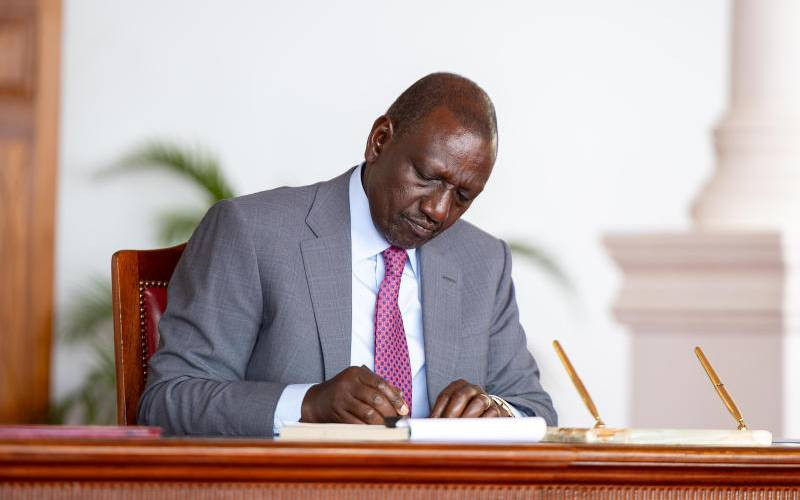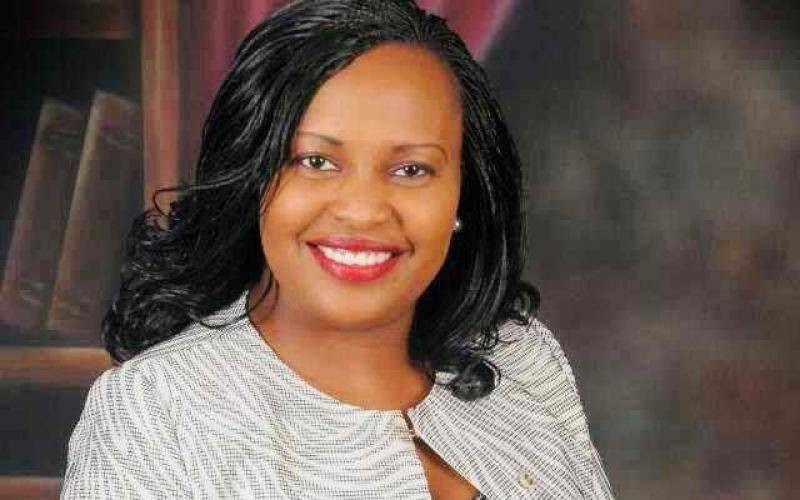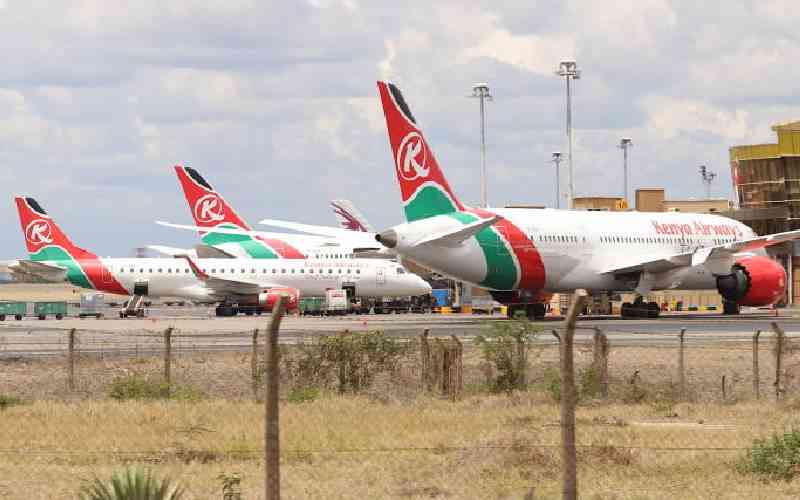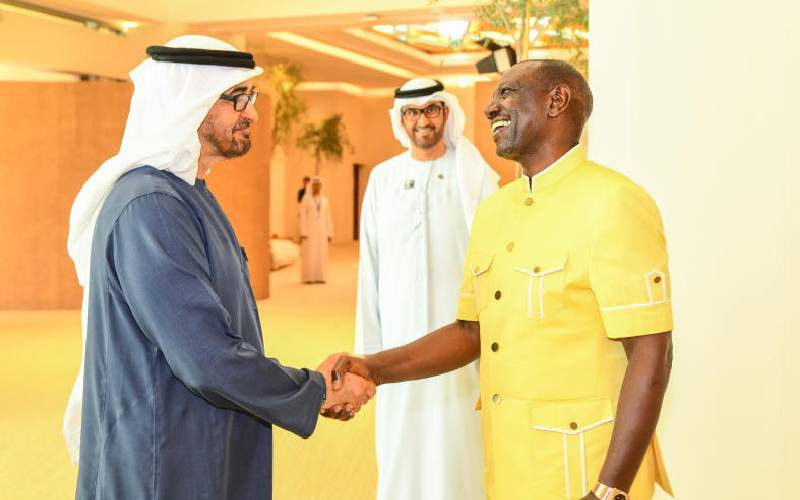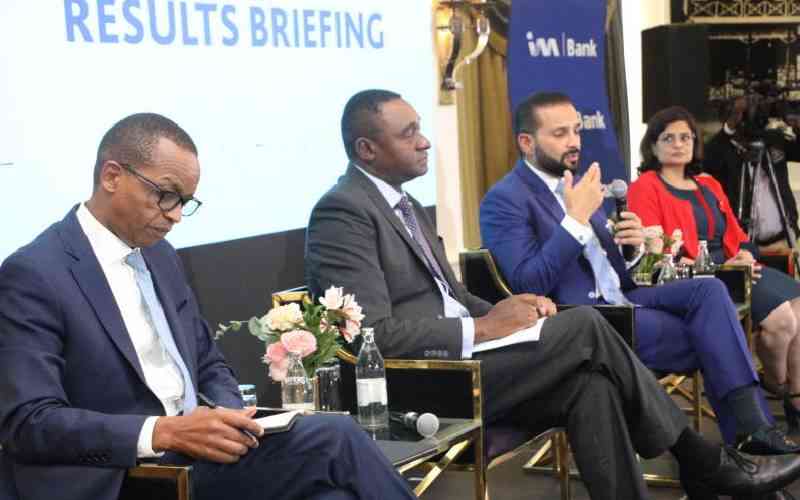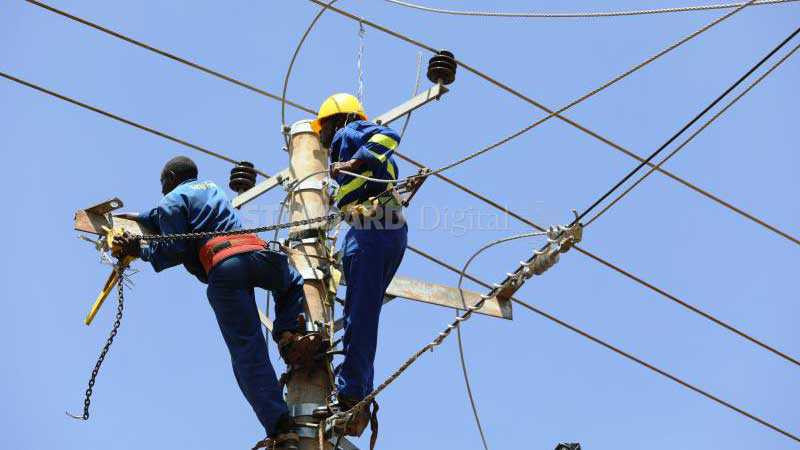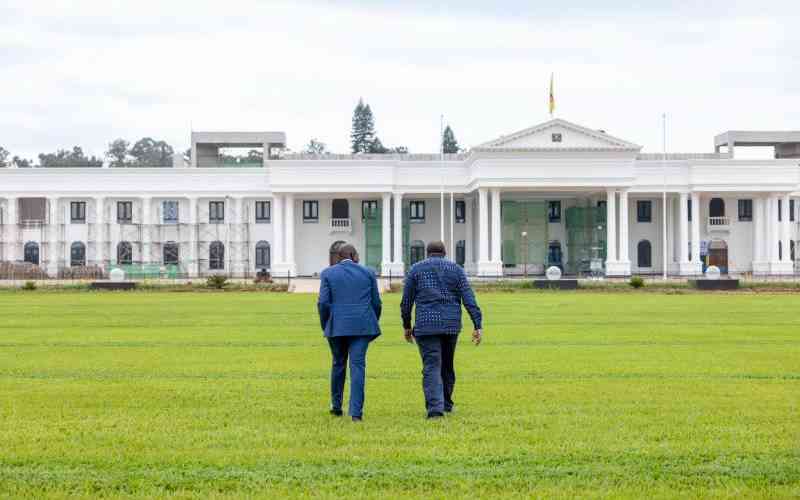
Every year, the Treasury marches before Kenyans with the same tired message: We must raise more revenue. New levies, new compliance measures, more taxes.
Ordinary Kenyans already crushed by the cost of living are told to tighten their belts, yet the state itself refuses to do the same.
The truth is simple: Kenya does not have a revenue problem. We have a spending problem. And nowhere is this clearer than in the presidency’s ballooning budgets since 2013.
READ ALSO: Ruto, Mnangagwa merge Nairobi and Luanda peace efforts in DRC
The Constitution of Kenya 2010 insulated the salaries of the President and Deputy President by charging them directly to the Consolidated Fund, alongside judges and constitutional officers.
That means their pay and benefits are guaranteed, no matter what. Yet, despite this, the “Presidency” has grown into one of the most bloated and expensive votes in our national budget.
The numbers are staggering. In 2013/14, the budget for the Presidency was about Sh5.4 billion. By 2016/17, it had grown to nearly Sh8.4 billion. In 2018/19, it was pushing Sh9.2 billion.
Under President Ruto’s first full budget for 2023/24, the allocation for the Presidency (State House, State Lodges, Deputy President’s office, and associated services) rose to Sh14.6 billion. That is almost triple the figure from a decade ago.
And this is only the visible budget. On top of this, billions are tucked into “confidential expenditure” a line item whose use is shielded from public scrutiny. In 2021/22, for instance, the Presidency alone had over Sh4.5 billion set aside for confidential spending.
That is money that no auditor and no Kenyan taxpayer can ever trace. Add to that the endless allocations for hospitality, domestic and foreign travel, motor vehicle purchases, State House renovations, and special projects, and you begin to see why Kenya’s fiscal crisis is less about revenue and more about runaway consumption at the top.
Contrast this with the reality facing the rest of the country. Hospitals lack drugs. Schools rely on harambees to build classrooms. County governments regularly receive delayed disbursements.
Small businesses collapse under the weight of pending bills. Doctors and lecturers strike for unpaid salaries. Yet the Presidency runs fleets of cars, aircraft, and helicopters. It maintains multiple state lodges.
It spends billions on travel and entertainment. This is not leadership; it is indulgence.
The deeper question is: Why does the Presidency require such enormous funding in the first place? If the salaries of the President and deputy are already guaranteed by law, what exactly are Kenyans funding through these billions? Are we paying for convoys of gas-guzzlers? For entourages of hundreds at foreign trips? For renovations of residences that should be modest? For “communication” budgets that run into billions while schools cannot afford chalk?
What is worse, Parliament, the supposed watchdog of the public purse, has become complicit. Year after year, MPs pass these inflated allocations without serious scrutiny.
Stay informed. Subscribe to our newsletter
The Budget and Appropriations Committee rarely interrogates why State House requires Sh2 billion for hospitality or why the DP’s office needs another increment for “miscellaneous.”
Instead, they rubber-stamp these budgets, ensuring the executive remains bloated while wananchi are squeezed.
Yet, the Presidency’s excesses are only the tip of the iceberg. Kenya’s overall recurrent expenditure consumes nearly 65 per cent of our annual budget.
Debt servicing alone now swallows about Sh1.3 trillion annually, leaving little for development. But instead of tackling this spending crisis head-on, the government distracts Kenyans with rhetoric about “broadening the tax base.”
The truth is this: Kenya already collects a significant share of taxes compared to our regional peers. In 2022/23, KRA collected Sh2.1 trillion, equivalent to around 16 per cent of GDP, one of the highest ratios in East Africa.
The problem is not how much we raise, but how recklessly we spend it.
This reckless culture begins at the very top. When citizens see leaders arriving at events in helicopters to open a tap, when they read of watches worth Sh20 million and shoes worth Sh10 million, when they see devolution conferences flooded with convoys of governors while their counties starve, then calls for tax patriotism ring hollow.
Kenya needs discipline in spending, not more taxes. And the Presidency must lead the way. That means cutting budgets for hospitality, travel, confidential expenditure, and luxury perks.
It means reducing entourages and convoys. It means adopting a culture of humility in state functions. Imagine the symbolic power of a President who flies economy, or one who attends a county function with a small team instead of a caravan of SUVs.
Citizens would see their leader walking the talk. Kenya’s fiscal crisis will not be solved by squeezing the wananchi further. It will be solved when the Presidency stops consuming like royalty and starts leading like a republic.
Until then, no amount of new taxes will ever be enough. The question must remain on the table: Why does the Presidency require so much money?
Unless that question is answered and acted upon, Kenya’s spending problem will bury us in debt long before any revenue reform can save us.
